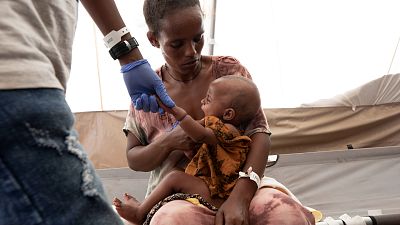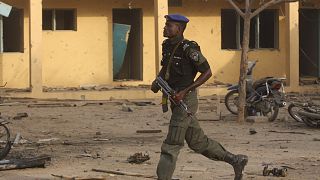Khartoum
In war-ravaged Khartoum, midwives like Hawaa Ismael are risking their lives to deliver babies and care for mothers despite Sudan’s crumbling health care system.
With fewer than 25% of medical facilities still functioning due to the ongoing conflict, pregnant women are forced to walk for hours, or even days, to find care. Some never make it in time. "The hardest case I faced was delivering a woman in a car," says Ismael, a midwife at the UNFPA-supported Karari Health Centre. "We were stuck. She had complications. I’ve cried many times especially when women camn’t reach us.”
Since fighting erupted, over 750,000 people have received reproductive health services in Sudan, according to the United Nations Population Fund (UNFPA). Yet recent funding cuts threaten to leave nearly half a million women in Sudan and neighboring countries without maternal or gender-based violence support services.
Despite the danger, Ismael continues to deliver up to four babies a day. She visits homes, crossing frontlines in what she calls a mission of necessity: "We examine pregnant women, guide them, and do monthly follow-ups."
The war has displaced over 13 million people and claimed at least 24,000 lives. Human rights organizations say the conflict, marked by famine, mass rape, and ethnic violence, has created one of the world’s worst humanitarian disasters.
For women in Sudan, midwives are often their only lifeline.











Go to video
UNICEF struggles to feed Sudan's displaced as malnutrition cases grow
01:13
Sudan: At least 89 killed in paramilitary attack
Go to video
Rapid Support Forces vows war with Sudanese army is not over
01:32
Sudanese celebrate Eid al-Fitr with hope amid ongoing conflict
Go to video
Sudan’s Sovereign Council declares Khartoum free after expelling RSF
01:11
Sudanese army recaptures Khartoum Airport and surrounds RSF stronghold